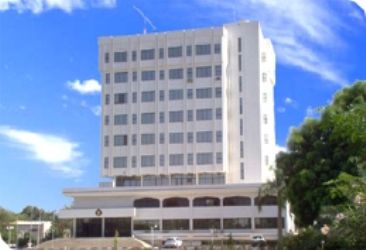Sudan seeks to improve human rights situation: diplomat
October 29, 2017 (KHARTOUM) – A senior diplomat at Sudan’s Foreign Ministry Sunday said Khartoum is strongly seeking to improve the human rights situation due to its impact on Sudan’s foreign relations.

The symposium was addressed by the head of the EU Delegation to Sudan, Jean-Michel Dumond, and the Director of the European and American Department at Sudan’s Foreign Ministry Mohamed Issa Idam and a number of officials.
In his address before the symposium, Idam said the Sudanese-European relations began to improve since 2013 following the improvement of the situation in Darfur, Blue Nile and South Kordofan.
He pointed out that Sudan played a pivotal role in combating terrorism and illegal migration in the region, saying the foreign ministry is making significant efforts to attract the European support for the education process in Sudan.
“There is a strong orientation in Sudan to improve the human rights situation due to its impact on Sudan’s foreign relations,” he said.
Last month, the UN Human Rights Council renewed for a period of one year the mandate of the independent expert on the human rights situation in Sudan, Mashood Baderin, under agenda item 10 of providing technical assistance in the field of human rights.
The Sudanese diplomat pointed to the EU’s great role in lifting the U.S. sanctions on Khartoum, expressing hope the EU continues its efforts to remove Sudan’s name from the U.S. list of states sponsors of terrorism as well as cancelling Sudan’s foreign debt and resolving the issue of the International Criminal Court (ICC).
He revealed that Sudan held more than 20 meetings with a number of the EU countries at the level of the joint political consultations committees during the past period, saying those meetings discussed all joint issues.
Earlier this month, the U.S. Administration permanently lifted 20-year-old economic sanctions against Sudan citing positive actions on humanitarian access and counter-terrorism.
However, Washington’s decision left other sanctions in place for the time being, including those against individuals with arrest warrants related to atrocities committed during the conflict in Darfur.
Also, it didn’t remove Sudan’s name from the list of state sponsors of terrorism.
For his part, Dumond said the lifting of the U.S. sanctions provides an opportunity to make peace and stability in Darfur region, South Kordofan and Blue Nile states as well as achieving democratic transformation and improving human rights situation.
The Sudanese army has been fighting Sudan People’s Liberation Movement/North (SPLM-N) rebels in the Two Areas since 2011 and the armed movements in Darfur since 2003.
Dumond pointed to the ongoing dialogue between the EU and Sudan at the level of the political consultations committees besides the exchange of visits among Sudanese and European officials.
The EU envoy further pointed to the EU grants to Sudan since 2014 including the food programme in Eastern Sudan and Darfur’s five states besides the education programme in the rest of the states.
Sudan, which is identified as a source of migrants and a transit country, is cooperating with the EU countries to combat the illegal migration from Sudan and Horn of Africa countries including Eritrea, Ethiopia and Somalia.
In April 2016, the EU officially allocated Sudan €100 million to improve the living conditions for refugees, help Sudanese returnees to reintegrate back into society, and to improve security at the border.
Also, Sudan benefits from additional funding under the EU Emergency Trust Fund for Africa, in particular from a €40 million programme to better manage migration in the region.
(ST)
